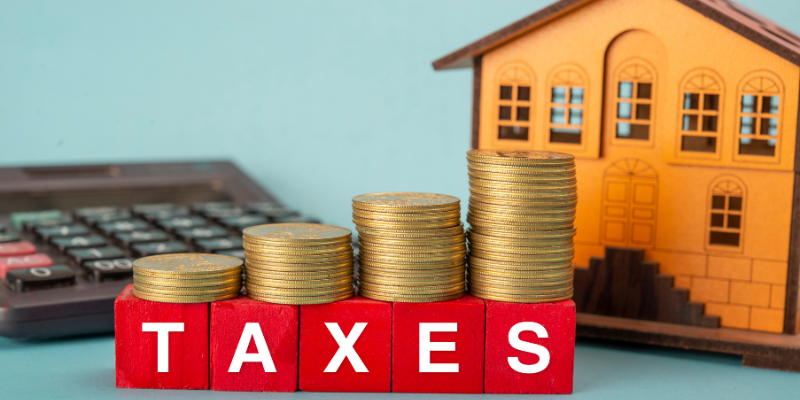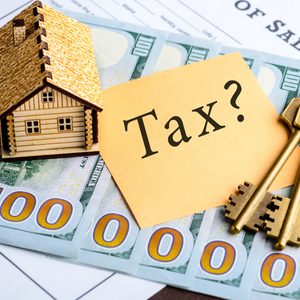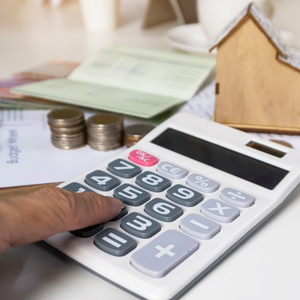
Selling your home in Hawaii is a major financial step, and knowing the taxes involved is key to maximizing your profit. From capital gains tax to exemptions and reporting, the process can be complex. This guide simplifies the tax implications of selling a house in Hawaii, offering strategies to reduce liability and tips to ensure a smooth, financially smart sale. For personalized guidance, We Buy Houses Hawaii in Hawaii can help make the process easier.
Key Highlights
- Capital gains tax is a primary concern when selling property in Hawaii.
- Hawaii also imposes a 7.25% state capital gains tax, separate from federal taxes.
- Homeowners may exclude up to $250,000 ($500,000 for couples) of gain from federal tax if the ownership and use tests are met.
- Investment property sales require depreciation recapture, often taxed at higher rates.
- Hawaii’s General Excise Tax (GET) may apply to services like commissions or legal fees.
- Accurate recordkeeping and proper reporting with both the IRS and the Hawaii Department of Taxation are critical.
Understanding Tax Obligations When Selling Your Home in Hawaii
Selling your home in Hawaii can be both exciting and daunting, especially when it comes to navigating the various tax implications that can impact your bottom line. Whether your property is a primary residence or an investment, understanding the tax rules set by the Internal Revenue Service (IRS) and the Hawaii Department of Taxation is crucial.
Hawaii taxes capital gains at a flat 7.25% rate, which is separate from federal rates of 0%, 15%, or 20%. This means even if you qualify for a federal exclusion, you may still owe state tax. Additionally, while the General Excise Tax (GET) doesn’t apply to the sale price of your home, it can apply to professional services tied to the sale, such as realtor commissions or legal support.
Key Factors Affecting Your Home Sale Tax Liability
When selling your home in Hawaii, taxes depend on several factors, including property type, cost basis, capital gains treatment, and whether it is your primary residence or an investment property. Primary residences often qualify for capital gains exclusions, while investment properties face full taxation and depreciation recapture.
Your cost basis, which is the purchase price plus improvements, closing costs, and adjustments, determines taxable profit. Accurate recordkeeping is essential for calculating gains, reporting depreciation, and ensuring compliance with IRS and Hawaii state rules. Long-term capital gains generally get lower federal tax rates, but in Hawaii, gains are taxed separately at a flat 7.25% rate instead of being classified as ordinary income.
Tax Implications for Selling Your Principal Residence in Hawaii

If the home you’re selling in Hawaii is your principal residence, you may qualify for the federal capital gains exclusion. This allows you to exclude up to $250,000 in gains ($500,000 for married couples) from federal taxes, provided you’ve lived in and owned the home for at least two of the last five years.
However, Hawaii does not follow the IRS exclusion in full. Even if your federal gain is excluded, you may still owe state-level capital gains tax. Keeping accurate records of your cost basis, including purchase price, improvements, and closing costs, is crucial for lowering taxable gains.
Qualifying for the Exclusion and Important Rules
The tax outcome of selling your home depends heavily on whether it is your principal residence. The IRS allows homeowners to exclude up to $250,000 of gain ($500,000 for married couples) if they meet the ownership and use tests, meaning they lived in and owned the home for at least two of the five years before the sale. These years do not need to be consecutive, but records must prove both use and ownership.
Your gain is the sale price minus your adjusted cost basis, which includes purchase price, closing costs, and improvements. If the home was ever rented, depreciation claimed must be recaptured and taxed, even if the exclusion applies. A partial exclusion may be available if you sell due to job changes, health, or unforeseen circumstances.
Hawaii does not fully follow the IRS exclusion. Even if you qualify for the federal capital gains exclusion, Hawaii still imposes its 7.25% state capital gains tax. Reporting the sale correctly on IRS Schedule D and Form 8949 is essential, even if your gain is fully excluded. Keep complete documentation to support your claim and avoid issues.
Calculating Your Home Sale Profit: The Role of Cost Basis

Understanding your cost basis is absolutely essential when selling a home, because it’s at the core of how your capital gains, and ultimately your profit, are calculated for tax purposes. The IRS and state authorities rely on your ability to correctly determine and adjust your basis, as this figure directly impacts the potential capital gains tax you might owe.
Whether selling a primary residence or an investment property, every dollar added or subtracted from your cost basis influences your taxable gain.
Calculating it accurately means properly accounting for purchase price, eligible expenses, improvements, depreciation, and other adjustments, each with its own tax implications that must be reported on the right tax return forms.
What Expenses and Adjustments Impact Your Gain Calculation?
Calculating your gain is more than subtracting your purchase price from your sale price. It starts with your cost basis, which includes not only the purchase price but also closing costs and major improvements. Improvements such as a new roof or remodel increase your basis and reduce taxable gain.
For investment properties, depreciation lowers your basis during ownership but triggers depreciation recapture when you sell, which is taxed separately. Other adjustments may include casualty losses, insurance proceeds, or deferred gains from prior sales.
Selling expenses like commissions, legal fees, and advertising reduce your sale proceeds and therefore your gain. Accurate documentation of these items is critical for compliance and tax savings. State rules may differ, and investment property sellers may face additional taxes such as recapture or net investment income tax.
Careful recordkeeping and proper adjustments ensure you report gains correctly, qualify for exclusions when eligible, and minimize your overall tax liability.
Tax Treatment When Selling an Investment Property

Selling an investment property in Hawaii comes with more tax obligations. In addition to capital gains tax, you will face depreciation recapture at the federal level, taxed up to 25%. Hawaii also taxes the gain at its 7.25% state rate.
If you want to defer taxes, a 1031 exchange may be possible, but Hawaii enforces strict timelines and reporting requirements through the Department of Taxation. This makes professional tax guidance especially valuable for investors.
Tax planning and reporting are simplified for investors who are familiar with the IRS’s Treatment of Selling Investment Property and understand how to apply depreciation, the paperwork needed for tax submissions, and how these factors influence the losses. Selling an investment property comes with particular tax consequences that are quite different from those associated with selling a primary residence.
Depreciation Recapture and Special Rules for Investors
On top of the taxes associated with a primary residence, selling an investment property comes with its own set of complications. These complications primarily come from depreciation recapture. The IRS requires the recapture of the allowable depreciation deductions and depreciation deductions taken during the entire ownership period. This recapture value is taxed up to twenty-five percent and is reported on a different form than the capital gains.
Your adjusted cost basis revolves around depreciation, defined as the purchase price plus eligible additions and improvements minus any depreciation. Selling a property entails gains by subtracting the basis from the net sale price. Depreciation recapture is subject to different taxation rules than the remainder of the gains, which will be taxed as short-term or long-term capital depending on the ownership period.
Investors are required to report and document the sale on IRS Form 4797 together with Schedule D. Many states have their own additional rules, with some states solely recapturing and taxing all gains as ordinary income. Keeping accurate records of all expenses, improvements, and depreciation is paramount to avoid the dreaded penalties or audits.
An exchange to defer recapture gains also involves strict IRS-compliant reinvestment timelines, while passive activity limit losses may restrict deductible losses. A 1031 exchange may be done over new property purchased within the timelines set by the IRS. You can also avoid taxes while the settlement gets you more profit by saving due to clever legal planning.
How Gains Taxes Apply to Home Sales in Hawaii
At the federal level, capital gains tax rates vary based on how long you have owned the property. Hawaii adds its own flat 7.25% capital gains tax on top, which can significantly impact your bottom line if not planned for in advance.
Selling expenses like realtor commissions, legal fees, and advertising reduce your taxable gain, but note that many of these services are subject to Hawaii’s General Excise Tax. Factoring this in early can help you avoid surprises at closing.
Rates, Deadlines, and Potential Tax-Saving Strategies
Capital gains taxes are important when considering selling a property. To calculate capital gains taxes, one needs to know the cost basis and selling price. Cost basis includes purchase price, closing costs, and improvements depreciated for investment property. The IRS taxes gains as either short-term or long-term for gains on invested capital. Short-term capital gain is subject to ordinary income tax, and long-term capital gains are 0%, 15%, or 20%, depending on how long the investment is owned.
Hawaii enforces its own capital gains tax policy by applying a flat 7.25% state tax rate on top of federal taxes. This means that even if you qualify for a federal exclusion, Hawaii may still collect state capital gains tax.
If the home was occupied as a primary residence for 2 of the 5 most recent years, one is allowed to exclude a maximum of $250,000 in gains from federal income taxes, or $500,000 for married couples. Taxes on the full amount can be payable as soon as that time frame is missed. However, for investment property, that gets complicated because it can be subject to depreciation recapture. To defer tax, one could use a 1031 exchange, but that comes with a 45–180 day time limit.
The documents that are most important, like closing statements, receipts, and proof of improvements, if organized and properly kept, can help defend your basis and support your claims for exclusions. Federal returns are usually due April 15, and separate filings may be required from the Hawaii Department of Taxation. Selling in staggered years and offsetting gains with capital losses and partial exclusions for relocation or hardship all help in minimizing tax liability.
FAQs
What taxes might I owe when selling my home?
You may owe federal capital gains tax and Hawaii’s 7.25% state capital gains tax. Services tied to the sale may also be subject to Hawaii’s General Excise Tax.
How does the capital gains exclusion for a primary residence work?
The IRS allows you to exclude up to $250,000 of gain ($500,000 if married filing jointly) on the sale of your main home if you owned and lived in the property for at least two of the previous five years. This exclusion does not apply to investment properties.
How do I calculate the taxable gain when I sell my house?
Your gain is the sale price minus your adjusted cost basis. The cost basis, which includes your purchase price, eligible closing costs, and capital improvements, is reduced by depreciation (for investment property). Keeping detailed records ensures an accurate calculation.
Gain = Sale Price - Adjusted Cost Basis
What is depreciation recapture, and how does it affect investment property sales?
Depreciation recapture is the process by which the IRS taxes any depreciation you previously claimed (or could have claimed) on an investment property. This portion of the gain is taxed at higher rates (up to 25%) and must be reported separately on your tax return.
What forms do I need to report my home sale?
You will likely use IRS Schedule D and Form 8949, plus Form 4797 for investment properties. At the state level, you must also report through the Hawaii Department of Taxation.
Do you need to sell your home but feel uncertain about what taxes you have to pay when you sell your house? Whether you want to sell quickly, avoid costly repairs, or prefer a hassle-free sale, We Buy Houses Hawaii is here to help. We provide fair cash offers, take care of the details, and make the process seamless. As trusted cash home buyers in Hawaii, we ensure a smooth transaction that saves you time and stress. Ready to move forward or have questions? Contact us at (808) 862-6692 for a no-obligation offer and discover how to sell your home for cash in Honolulu today!
Helpful Hawaii Blog Articles
- How To Successfully Sell Your Mortgaged Home In Hawaii
- Guide To Selling A Home With Tenants In Hawaii
- Expert Tips For Renovating Homes To Sell Quickly In Hawaii
- What Taxes Do I Have to Pay When I Sell My House in Hawaii
- How To Sell House Without A Realtor in Hawaii
- I Inherited A House Now What in Hawaii
- Can I Sell My House If It Is In Foreclosure in Hawaii
- Selling A House Divorce in Hawaii
- What Is The Best Time To Sell A House in Hawaii

